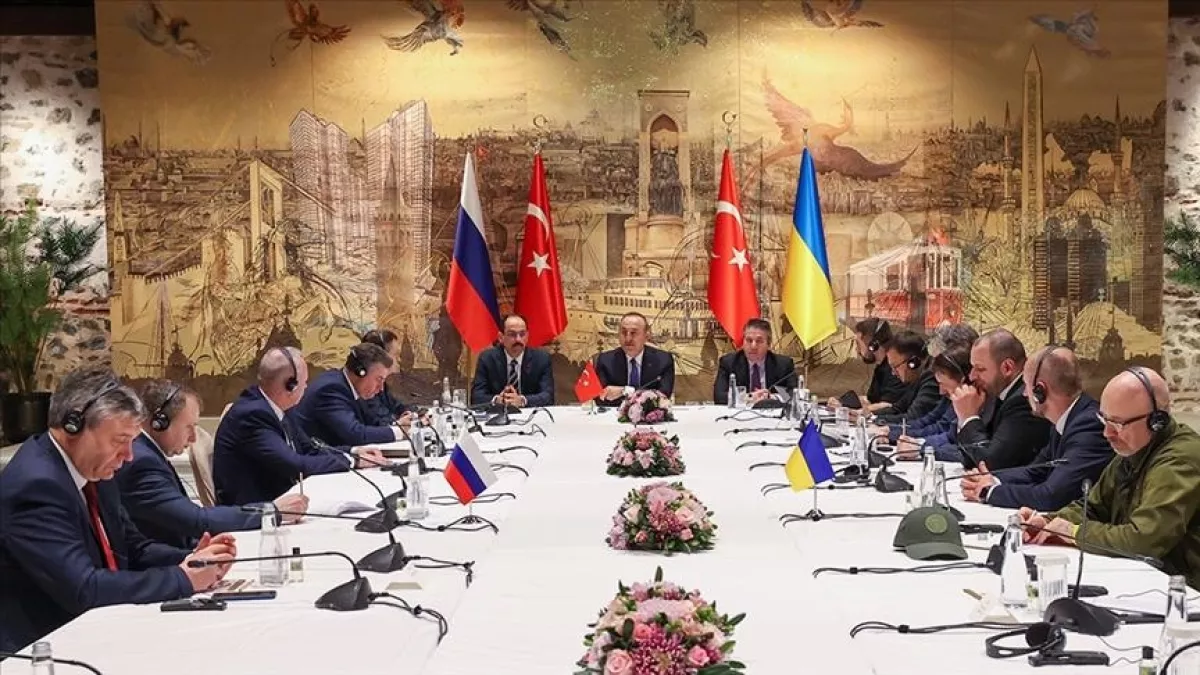Lessons to learn from 3-years faltering Ukraine-Russia peace negotiations Analysis by Foreign Affairs
Nearly three months into a renewed diplomatic initiative by the Trump administration to end the war in Ukraine, negotiations have stalled without significant breakthroughs. The current talks echo an earlier moment of promise: the 2022 Istanbul Communiqué. That agreement, reached during the early weeks of Russia’s invasion, proposed a framework in which Ukraine would adopt permanent neutrality and forgo NATO membership in exchange for binding international security guarantees. However, the deal ultimately fell apart due to a lack of follow-through, insufficient Western backing, and diverging long-term security goals between Russia and Ukraine.
The Foreign Policy publication revisits the early negotiations that culminated in the Istanbul document in their latest article. By examining that initial phase, the article explores the lessons learned and outlines potential scenarios for how the current renewed diplomatic efforts, launched by the Trump administration, could unfold in the coming weeks.
Today’s negotiations are shaped by the same concerns that defined the Istanbul talks—namely, how to guarantee the long-term security of both Russia and Ukraine. While much has changed since 2022, including battlefield dynamics and political leadership, the fundamental obstacles remain: Russia demands assurances that Ukraine will never join NATO or host foreign troops, while Ukraine insists on ironclad security guarantees to prevent future invasions. These clashing imperatives continue to be the central challenge to any peace agreement.
Negotiating parties at the table
At Istanbul, the West’s absence from negotiations was a critical flaw. Ukraine negotiated directly with Russia and only consulted its Western allies after the Communiqué was finalized. This exclusion undermined Western buy-in, especially given that the proposed guarantees obligated the US and NATO members to intervene militarily if Ukraine were attacked again—obligations stronger than those in NATO’s own Article 5. Unsurprisingly, the West distanced itself from the framework, making clear that Ukraine could not count on such security assurances.

This dynamic persists today. Although President Trump has relaunched diplomacy, his administration, like Biden’s before him, has shown no willingness to offer Ukraine formal security guarantees. European allies remain similarly cautious. As a result, Ukraine continues to face the same strategic dilemma: how to trust a peace settlement without credible commitments from its backers. Meanwhile, Russia is also driven by fear that Ukraine, left well-armed and without constraints, might seek to retake territory or rejoin Western military alliances in the future.
While territorial questions—such as the status of Crimea and other occupied regions—dominate public discourse, the Istanbul talks revealed that these issues are secondary to broader security concerns. Russia operated for years without formal recognition of its 2014 annexation of Crimea and could continue to do so. Likewise, the idea of offering “de facto recognition” of occupied areas is largely symbolic, since recognition is a legal act that either exists or does not. Realistically, neither side is likely to surrender territory they currently control; the battlefield, not the negotiating table, will determine territorial outcomes.
Critically, the article argues that any sustainable peace must involve all stakeholders from the outset. The slogan “Nothing about Ukraine without Ukraine” must be expanded to include “Nothing about the West without the West.” Excluding major powers undermines negotiations and hinders implementation. Moreover, if military conditions continue to favour one side or the other, diplomacy is unlikely to succeed. The prospect of battlefield success—especially if Russia believes the US will ultimately withdraw support—can reduce incentives to negotiate.
Ultimately, the Istanbul experience underscores that while temporary agreements may emerge in moments of urgency, durable peace requires comprehensive participation, security guarantees backed by credible commitments, and recognition that battlefield realities shape diplomatic leverage. Without addressing these fundamentals, current negotiations risk falling into the same traps that doomed the Istanbul framework.
By Nazrin Sadigova








